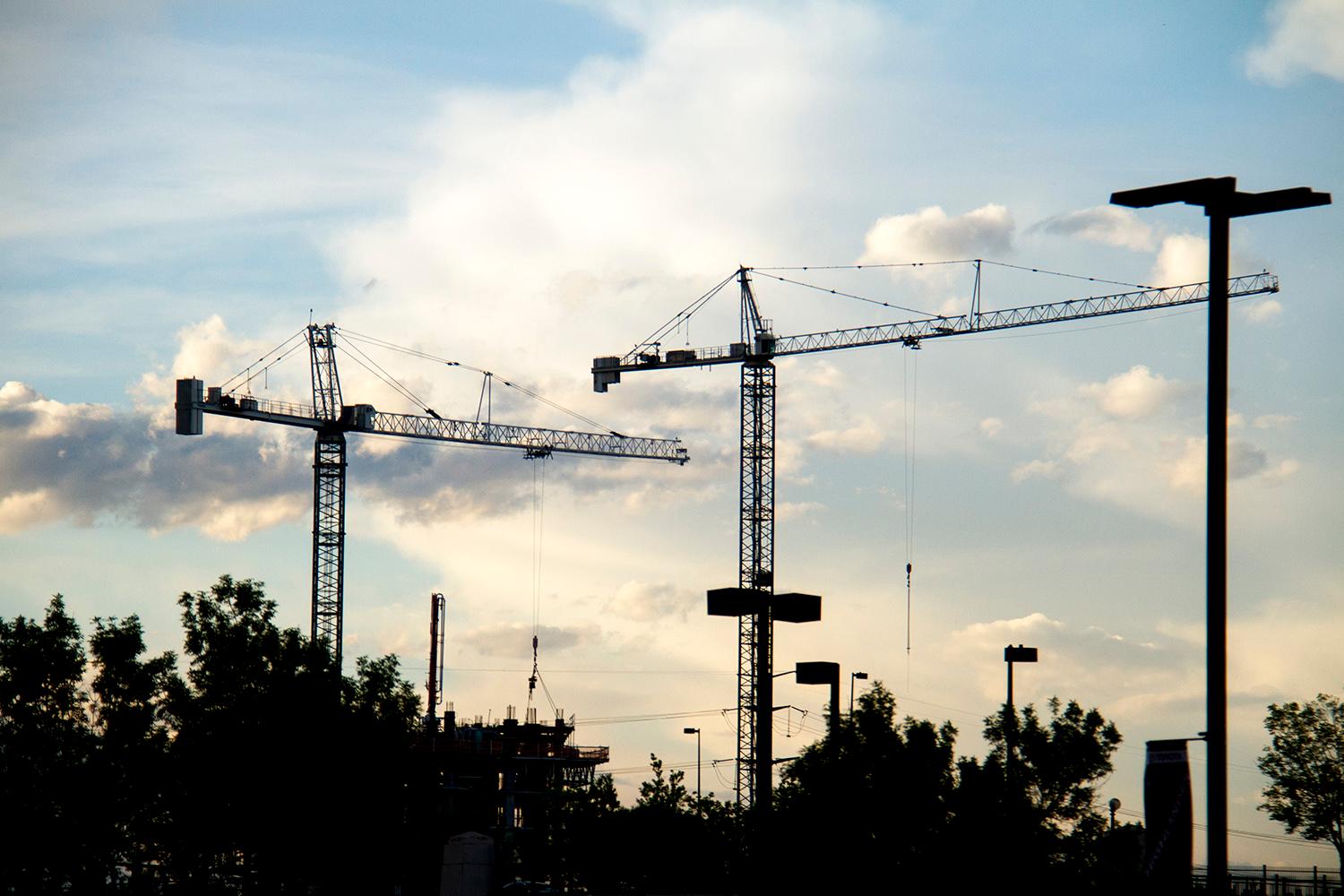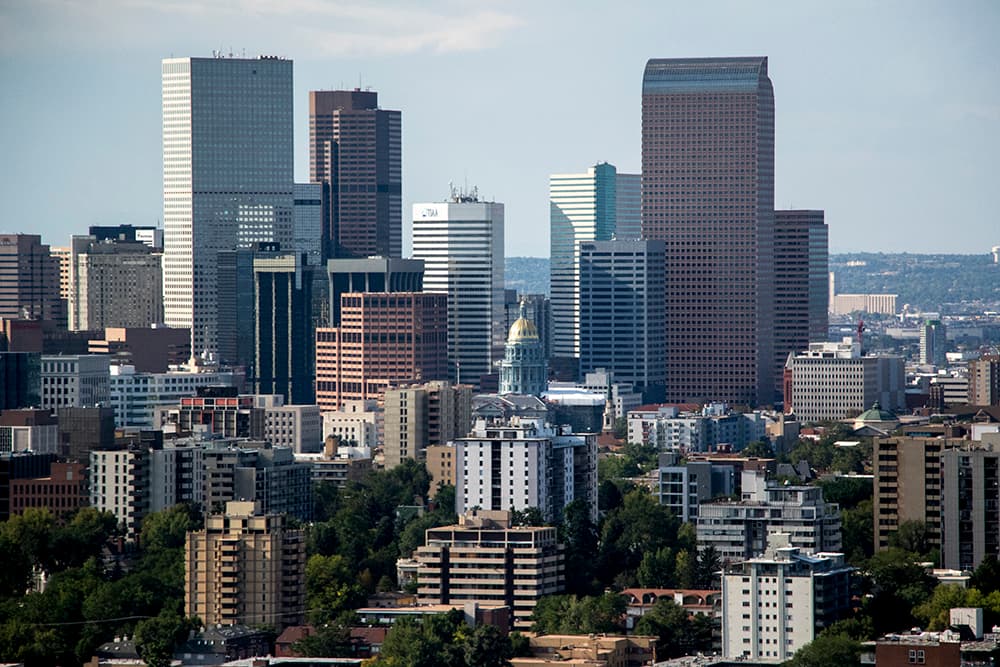
Denver Mayor Michael Hancock announced a $2.01 billion budget this week for 2018 that includes new investments in transportation and affordability, that grows the size of city government as Denver grows and that starts to dedicate marijuana money to concrete projects you might see in your neighborhood.
The general fund budget, the one that pays for most basic city services, is $1.39 billion. That's a 5.4 percent increase over this year. Revenue is projected to go up 3.7 percent. That discrepancy isn't a problem because Denver expects to end the year with additional money above and beyond its reserves, according to Denver's Chief Financial Officer Brendan Hanlon.
The 2018 budget calls for budget reserves of 15.2 percent, along with a legally required 2 percent contingency for emergencies.
Here's what you need to know:
Transportation gets a lot of attention in this budget.
Hancock has made transportation a major focus of his administration, dedicating half of the 2017 general obligation bond program to roads, sidewalks, bike and transit infrastructure and using his State of the City address to announce ambitious goals.
The city usually spends between $70 million and $75 million on transportation needs. The 2018 budget adds an additional $31.5 million to implement a new Mobility Action Plan.
Over the last few years, the city has identified five areas of town that are particularly dangerous for cyclists and pedestrians. The budget includes money for safety improvements like striping, signage, signal changes and the reconstruction of these seven intersections within those high-risk areas:
- Kentucky and Federal
- 13th and Broadway
- 12th and Broadway
- Franklin/Park Ave/Colfax
- 20th and Market
- 8th and Zuni
- 8th and Wyandot
Those aren't the only transportation improvements you'll see.
- Ten miles of regular bike lanes, three miles of neighborhood bikeways (these are the ones without a line separating the lane, but rather a "sharrow," or shared lane arrow) and two miles of protected bike lanes.
- Expanded photo traffic enforcement and signage to improve safety for pedestrians. This will cost $500,000 to implement but is expected to generate a net $1 million in revenue, which will be put into more safety improvements for roads.
- $4.5 million for a revolving fund to help homeowners repair dangerous sidewalks or install new sidewalks, which is the responsibility of individual landowners in Denver. The details of how this program will work are still being determined.
This spending is independent of whether the GO bond passes in November.
Denver's housing fund is taking in less money than expected.
When Denver City Council approved its affordable housing fund last year, planners projected the city would collect $3.5 million in linkage fees on new construction for 2017. But developers rushed to get their plans through ahead of the deadline, and the city is on pace to collect just $800,000 this year. That's a lot less than expected.
The 2018 budget has a more conservative estimate of $1.5 million in linkage fees, plus $7.2 million in dedicated property taxes. The projects that avoided paying fees will get built out, and new projects will come through the system. City officials said they still expect the fund to generate $150 million over the next 10 years.
Denver is transferring money from human services and the general fund so that there will be $15 million available for affordable housing from local funds, plus another $6 million in federal money.
In addition to $21.6 million for affordable housing programs, the 2018 budget calls for:
- $500,000 for one-time payments for struggling city residents. This is a brand new program and could help someone write a rent check, pay a utility bill or buy food.
- $500,000 to expand property tax rebates for seniors and people with disabilities.
- $670,000 to add 100 more supportive housing units for people who are chronically homeless.
- $3.7 million to improve homeless services and shelter quality, do street outreach and help with the rapid re-housing of people who have lost their homes
- $450,000 to expand Denver Day Works from three days a week to five, allowing participants to earn more money, and allow another 24 people a week to participate.
$10 million in marijuana money will get turned into roads, parks and neighborhood projects.
There's been a call for a while now from portions of the City Council and the community to take the city's marijuana tax revenue and put it toward specific projects and initiatives. This budget does that with $5 million to address deferred road maintenance, $4 million for parks and rec center maintenance and $1 million for a community-based pilot that would let neighborhoods fund small projects. That's out of a projected $21 million in total marijuana revenue in 2018.
Denver is hiring a lot of people -- or at least trying to.
The 2018 budget calls for permanent full-time equivalent staff positions to reach 11,836 -- 382 more people than the city employs this year and 835 more than it employed in 2016.
It's the city's growth that both allows Denver to hire more and compels it, Hanlon said.
"We wouldn't be hiring staff if we didn't have the revenue, but it's also responding to the demands," he said.
On a per capita basis, Denver still has fewer employees than it did 10 years ago: 120 per 100,000 residents compared to 130 in 2007.
Those new positions include: 22 uniformed police officers, 32 sheriff's deputies, 10 911 dispatchers and 18 "co-responders." Co-responders are trained mental health workers who accompany police on calls, and they've helped keep hundreds of people out of jail already. In the first year of the program, six co-responders went on 1,537 calls, and only 3 percent of those ended with an arrest or citation.
Denver also plans to hire people in transportation to implement the plans described above and Community Planning and Development to reduce permit wait times.
Denver will be trying to fill these positions in the same tough labor market that other employers struggle with, and city officials said it will be a challenge.
There are lots of other changes you might see.
The budget includes money for:
- Recycling in city parks
- 170 more wifi pucks that can be checked out of the Denver Public Library
- Expanded hours at the Hayden and Hampden branch libraries
- Extended Saturday hours at rec centers
- Discounted rec center access for seniors
- Extra cleaning and security for the downtown library
- 16 electric vehicle charging stations
Next steps:
Denver City Council holds a public hearing on the 2018 budget at its Oct. 23 meeting. The meeting starts at 5:30 p.m. in council chambers on the third floor of the City and County Building, 1437 Bannock St. Public hearings never start earlier than 6 p.m.
You can sign up to speak between 5 and 5:30 p.m. in the City Council office or during the recess.













